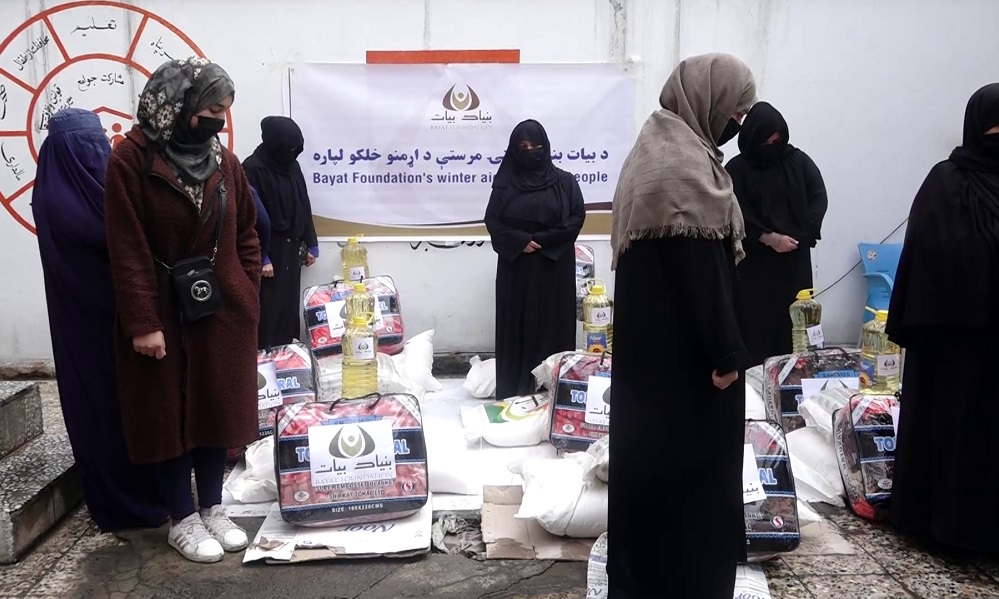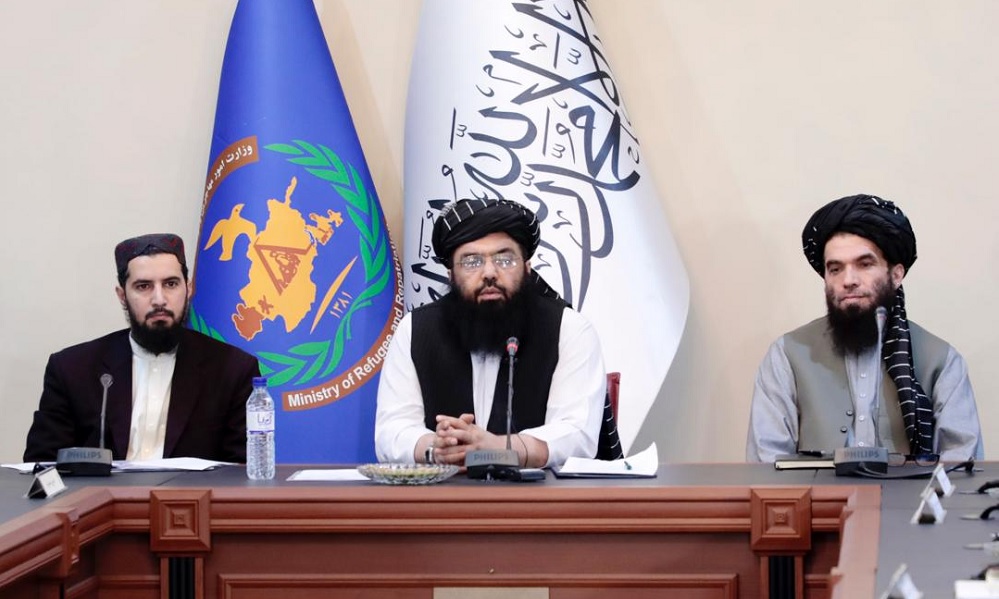Latest News
Herat gets the keys to 89 new schools

The construction of 89 schools in Herat province, under the umbrella of the National Citizenship Charter project of the Ministry of Rural Rehabilitation and Development, has been completed – providing thousands of students with access to proper education facilities.
Mohammad Nader, the head of the development council for Ghorian district in Herat, has welcomed the completion of the project and said this means village children are not learning outdoors.
“The students of villages studied outside for six years in an unfavorable environment, but with the construction of these schools the people’s problems were solved.”
In addition to the newly completed schools in Herat, a further 117 planned. These are being built by the AQRA project in 19 districts of the province.
Of the total 206 schools, 89 have already been built, 62 are under construction and another 55 are in the planning stage.
At the inauguration of the new academic year, President Ashraf Ghani vowed to increase teachers’ salaries, to hire over 11,000 additional teachers, and to build 1,800 new schools across the country.
According to Ghani, at least one million children will attend school this year.
Afghanistan’s education system has been devastated by more than three decades of sustained conflict and for many of the country’s children, completing primary school remains a distant dream – especially in rural areas and for girls.
In the poorest and remote areas of the country, enrolment levels vary extensively and girls still lack equal access.
An estimated 3.7 million children are out-of-school in Afghanistan – 60 percent of them are girls, UNICEF reports.
The underlying reasons for low girls’ enrolment is insecurity and traditional norms and practices related to girls’ and women’s role in the society. But in some parts of the country, a shortage of schools and insufficient transportation are the main obstacles to education – a long walk to school means fewer children go.
According to UNICEF, geographical barriers, especially in mountainous areas, also make it hard for children to reach the classroom while the socio-political and humanitarian crises that Afghanistan faces critically affect a fragile education system.
Natural disasters such as floods, earthquakes, and landslides also exacerbate the situation for all children.
Latest News
Turkish intelligence captures a Daesh member near the Durand Line

Turkish intelligence agents have captured a senior member of Daesh near the Durand Line, reportedly preventing planned suicide attacks in Turkey and other countries, according to Turkey’s state-run Anadolu Agency on Monday.
The suspect, identified as Mehmet Goren, is a Turkish citizen. He was apprehended during a covert operation and transferred to Turkey. Details on the timing of the operation or the involvement of Afghan and Pakistani authorities were not disclosed.
According to the report, Goren had risen through the ranks of Daesh and was allegedly tasked with carrying out suicide bombings in Turkey, Pakistan, Afghanistan, and Europe.
Daesh has a history of deadly attacks in Turkey, including the January 1, 2017 shooting at an Istanbul nightclub that killed 39 people.
Anadolu Agency reported that Goren’s arrest also provided intelligence on the group’s recruitment strategies and planned activities.
Latest News
Dozens of needy families in Kabul receive winter aid from Bayat Foundation

Dozens of needy families in Kabul’s fifth district have received essential winter assistance from the Bayat Foundation, as part of ongoing efforts to ease hardship during the cold season and worsening economic conditions.
According to foundation officials, the aid package includes staple food items such as flour, rice, and cooking oil, along with warm blankets to help families cope with freezing temperatures. Haji Mohammad Ismail, Deputy Head of Bayat Foundation, said the distribution began in Kabul and will soon be expanded to other provinces.
“Our assistance includes flour, rice, cooking oil, and blankets,” Ismail said. “Today, we started distributing these items in Kabul’s fifth district, and God willing, the aid will reach other provinces in the near future.”
Afghanistan continues to face widespread poverty, unemployment, and food insecurity, with many families struggling to meet basic needs, particularly during winter when access to work and heating becomes more difficult.Humanitarian organizations and charitable foundations have stepped up relief efforts to support those most affected.
Beneficiaries welcomed the assistance, describing it as a lifeline. “May God bless you for helping the poor. We had nothing and no work,” said one recipient. Another added, “Thank you for your help. Our flour was almost finished.”
Bayat Foundation officials stressed that winter aid distributions will continue in Kabul and other provinces in the coming days, as part of their broader commitment to supporting needy families across the country.
Latest News
Nearly seven million Afghan refugees return home since Islamic Emirate’s takeover

Since the Islamic Emirate came to power, approximately 6.8 million Afghans have returned home, either voluntarily or forcibly, from neighboring countries and other nations, according to the Minister of Refugees and Repatriation.
Mawlawi Abdul Kabir, speaking at a meeting on finalizing a draft plan for a permanent migration solution in Afghanistan, added that 1.3 million Afghans have been internally displaced due to natural disasters during the same period.
With winter approaching, widespread poverty and severe cold are threatening thousands of lives. Meanwhile, the forced expulsion of Afghan migrants from neighboring countries, particularly Iran and Pakistan, continues.
The Islamic Emirate has repeatedly urged neighboring states to allow migrants to return voluntarily. According to UNHCR, over two million Afghans have returned from Iran and Pakistan since the start of 2025.
-

 Latest News3 days ago
Latest News3 days agoAfghan border forces prevent illegal entry of hundreds into Iran
-

 Latest News3 days ago
Latest News3 days agoPakistan summons Afghan diplomat over deadly attack in North Waziristan
-

 Latest News2 days ago
Latest News2 days agoAfghan health minister calls for medical cooperation between Kabul and New Delhi
-

 Latest News1 day ago
Latest News1 day agoAfghanistan signs 30-year deal for marble mining in Daikundi
-

 Latest News3 days ago
Latest News3 days agoJapan allocates nearly $20 million in humanitarian aid for Afghanistan
-

 Latest News2 days ago
Latest News2 days agoKarzai urges reopening of girls’ schools and universities for Afghanistan’s bright future
-

 Health5 days ago
Health5 days agoAfghanistan seeks India’s support in standardizing traditional medicine
-

 World5 days ago
World5 days agoUS readies new Russia sanctions if Putin rejects peace deal, Bloomberg News reports
























